Search Results for: antarctica
Skip to resultsCan’t find what you’re looking for? Visit our FAQ page.
1,394 results for: antarctica
-
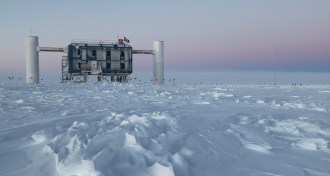 Particle Physics
Particle PhysicsTriplet of high-energy neutrinos detected from unknown source
The IceCube Neutrino Observatory spotted three neutrinos within 100 seconds that seem to have come from the same place in the sky.
-
 Particle Physics
Particle PhysicsRare triplet of high-energy neutrinos detected from an unknown source
The IceCube Neutrino Observatory spotted three neutrinos within 100 seconds that seem to have come from the same place in the sky.
-
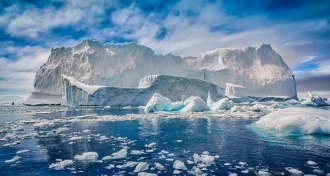 Climate
ClimateAntarctic sea ice shrinks to record low
The Antarctic sea ice extent has reached a new low just two years after hitting a record high.
-
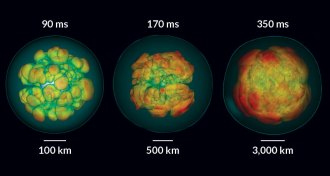 Astronomy
AstronomyWhen a nearby star goes supernova, scientists will be ready
Scientists hope to detect neutrinos and gravitational waves from a nearby supernova.
-
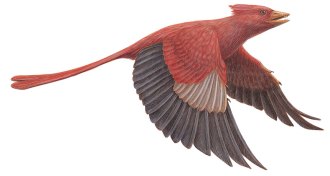 Life
LifeSome lucky birds escaped dino doomsday
Dino doomsday took out early birds too, but a lucky few survived.
By Susan Milius -
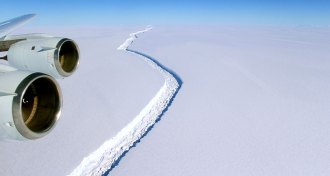 Earth
EarthAntarctica’s Larsen C ice shelf nears breaking point
A fast-growing crack in Antarctica’s Larsen C ice shelf could soon break off a 5,000-square-kilometer hunk of ice into the ocean.
-
 Earth
EarthAntarctic ice shelf heading toward collapse
A fast-growing crack in Antarctica’s Larsen C ice shelf could soon break off a 5,000-square-kilometer hunk of ice into the ocean.
-
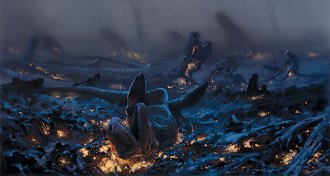 Earth
EarthDevastation detectives try to solve dinosaur disappearance
Dinosaurs and others faced massive losses 66 million years ago from an asteroid impact, volcanic eruptions or maybe a mix of the two.
-
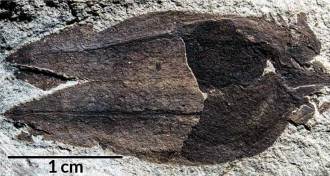 Paleontology
PaleontologyTomatillo fossil is oldest nightshade plant
Two 52-million-year-old tomatillo fossils in Patagonia push the origin of nightshade plants back millions of years, to the time when dinosaurs roamed.
By Meghan Rosen -
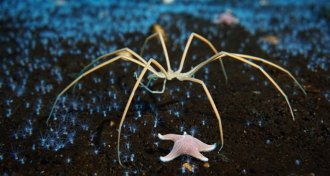 Animals
AnimalsIt takes guts for a sea spider to pump blood
Most sea spiders have hearts, but what really gets their blood flowing are gut contractions.
By Susan Milius -
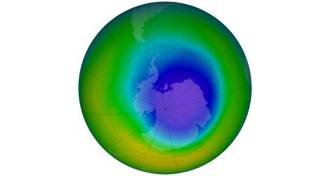 Earth
EarthYear in review: Ozone hole officially on the mend
Research this year confirms that the Antarctic ozone hole is healing — an international success attributed to cooperation and new technologies.
-
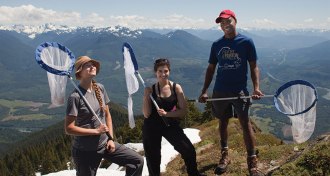 Ecosystems
Ecosystems‘Citizen Scientist’ exalts ordinary heroes in conservation science
Journalist Mary Ellen Hannibal’s “Citizen Scientist” tells tales of ordinary people contributing to science.